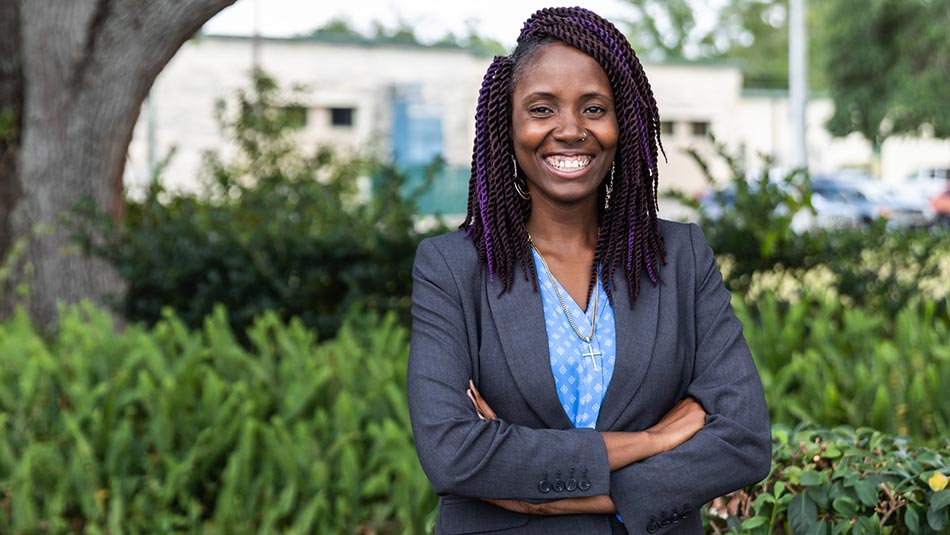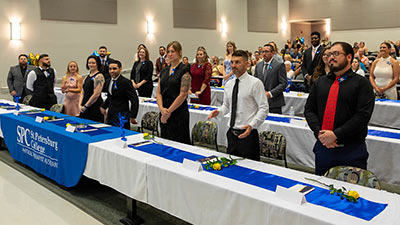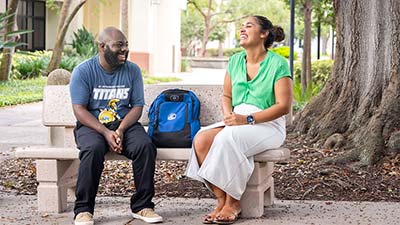The Aspen Institute and the Community College Research Center Select SPC for ‘Unlocking Opportunity’ Initiative
SPC Marketing | 2/9/2023

The Aspen Institute, in partnership with the Community College Research Center at Teacher College, Columbia University named St. Petersburg College one of 10 community colleges selected for Unlocking Opportunity: The Post-Graduation Success and Equity Network. Announced last fall, this network will be comprised of 10 community colleges committed to improving students’ post-completion outcomes and proving that—by focusing on delivering credentials of value—colleges can strengthen the programs they offer and advising they provide.
SPC’s Vice President of Academic Affairs Dr. Matthew Liao-Troth is looking forward to joining the Unlocking Opportunity Network, sharing the college’s success, and learning from other institutions across the country.
“For years St. Petersburg College has designed the curriculum in our degree and non-degree programs to align with the good-paying jobs and careers in our community,” Liao-Troth said. “In recent years we have reorganized our preparation of all students for job placement and career transition and extended additional outreach in working with employers to ensure that we have a smooth transition connecting students with the jobs that are in demand in our region.”
This national network will lead the field in shifting from the important but incomplete goal of graduating students with any credential to advancing access and completion with the end in mind: credentials of value. That means making sure that every student is set up to earn a bachelor’s degree or a high-quality workforce credential—including students of color and low-income students who are least likely to enroll in and complete the programs that most often result in strong outcomes.
“For many years, community colleges have been focused on improving graduation rates—and progress has been steady and impressive,” says Josh Wyner, founder and executive director of the Aspen College Excellence Program. “But with enrollments dropping for a decade, it is time for community colleges to turn their attention to increasing the value of the credentials they deliver, especially for the large numbers of Black, Hispanic, and low-income students who rely so heavily on community colleges to provide a path to a better life. The colleges selected for this network have shown that they can make scaled and systemic change, and are ready to work together on this critical goal.”
The network will run from 2023 through 2028. During the first three years, colleges will set concrete goals, plan reform strategies, and implement changes with the support of coaches and learning sessions. The final three years will include continued monitoring and research by CCRC and Aspen alongside the continuing release of publicly-accessible tools, case studies, and reports to share the lessons with the field. Throughout the process, colleges will focus on strengthening and rethinking existing programs and developing new program models that expand career and educational opportunity for all students.
“We’re excited to work with these colleges to help them evaluate and strengthen their programs and see which lead to great outcomes: either good jobs, jobs right away or via completion of a bachelor’s degree,” said Davis Jenkins, a senior research scholar at the Community College Research Center. “This requires intensive work, and I cannot imagine a better group of institutions from which we can learn and share lessons with the field on how to deliver excellent and equitable programs.”
The colleges in the network are:
- Alamo Colleges District: San Antonio College, TX
- Laramie County Community College, WY
- Lorain County Community College, OH
- Monroe Community College, NY
- Odessa College, TX
- Sinclair College, OH
- Southwest Wisconsin Technical College, WI
- St. Petersburg College, FL
- Tulsa Community College, OK
- Valencia College, FL
San Jacinto College in Texas will also participate, as a resource college for the network. This project is made possible by Arnold Ventures, Ascendium, ECMC Foundation, the Michael & Susan Dell Foundation, and Lumina Foundation.



